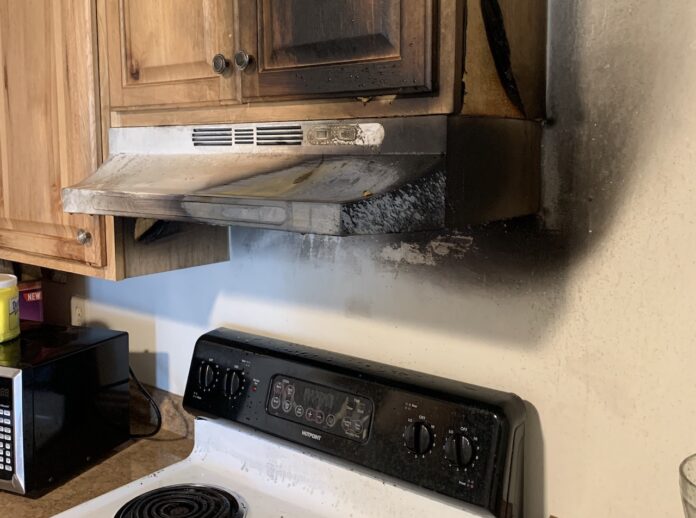On June 19th, the Rochester Fire Department responded to a reported structure fire in a 2.5-story building with 3 apartment units. The units house a total of 10 occupants, 4 of which are minors. No occupants were injured.
Upon arrival, firefighters observed smoke emanating from the building, discovered an activated sprinkler head, and confirmed that the fire was extinguished.
After speaking with the occupants, firefighters determined that the occupants had been frying food, left a pan of hot oil on the stove, and were later made aware of the fire by the activation of the sprinkler system.
According to Adam Hughes, Deputy Chief of Prevention, no working smoke detectors were located in that particular apartment as they had been removed by the occupants months prior.
“The occupants said the smoke detectors went off frequently because they fry a lot of food,” said Hughes. “However, smoke detectors are critical and would have provided the occupants earlier notification. They were lucky.”
Hughes stated that the sprinkler activation, or fire suppression system, was a “lifesaver” to the occupants of the affected apartment and the rest of the building.
“The sprinkler activation extinguished the fire quickly,” said Hughes. “Had the building had no sprinkler system, this could have been much worse; injures to occupants, loss of life, extensive damage, or loss of the property.”
Hughes said that the Rochester Fire Department wants to use this situation as an educational opportunity for Rochester residents and business owners.
“This truly is a ‘sprinklers save lives’ scenario,” Hughes continued. “However, we want to make people aware of what to do in the case of a grease fire.”
Things to do if you have a grease fire:
-
- Evacuate if the conditions are too dangerous to attempt extinguishment.
- Call 911.
- Turn off the heat source.
- Cover the pan with a lid.
- If no cover is available, douse the flames with baking soda or salt.
- DO NOT use water.
- DO NOT move the pan.
The National Fire Protection Association (NFPA) is celebrating the 100th anniversary of Fire Prevention Week™ (FPW). This year’s FPW campaign, Fire won’t wait. Plan your escape, works to educate everyone about simple but important actions they can take to keep themselves and those around them safe from a home fire.
According to the FPW website, “Today’s homes burn faster than ever. You may have as little as two minutes (or less) to safely escape a home fire from the time the smoke alarm sounds. Your ability to get out of a home during a fire depends on an early warning from smoke alarms and advance planning.”
Visit www.nfpa.org to learn more about fire prevention.
